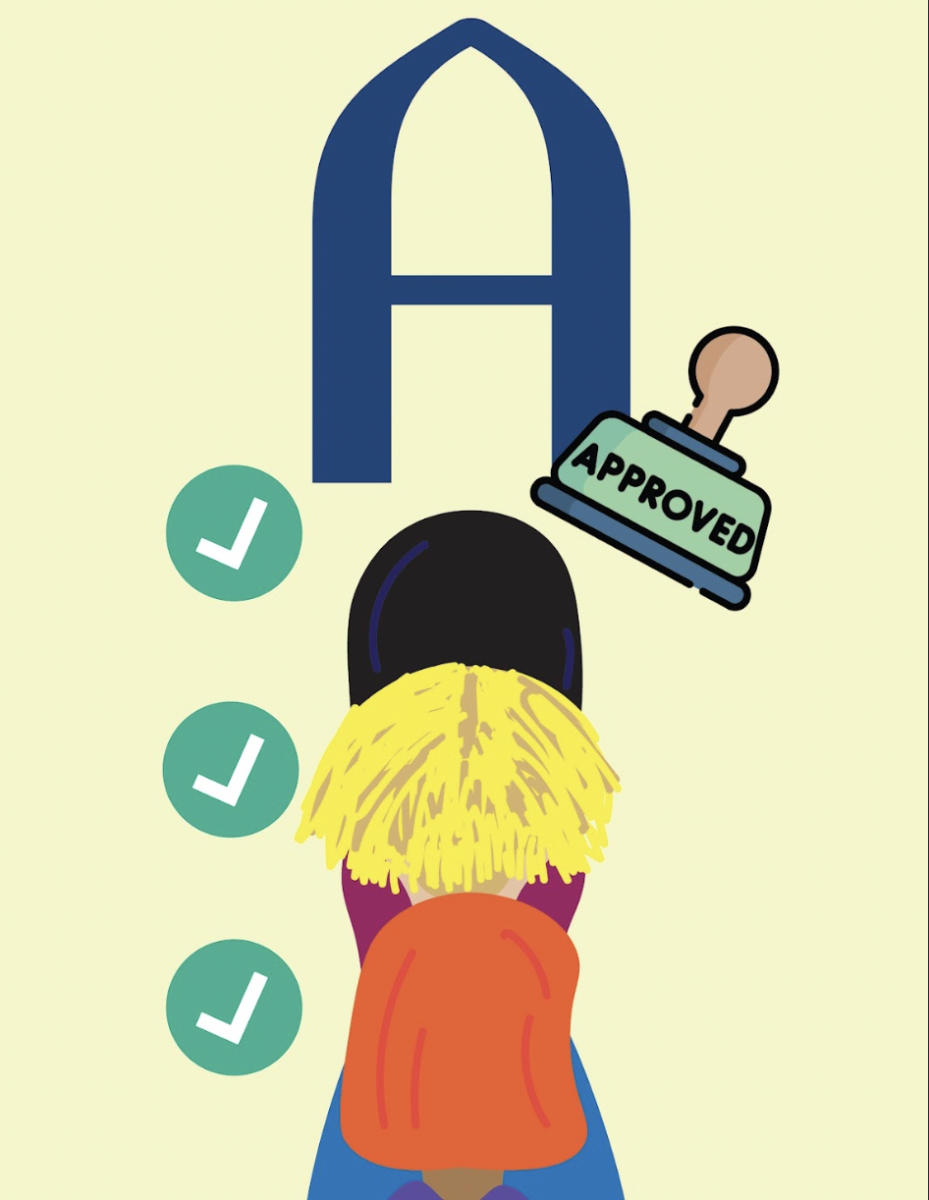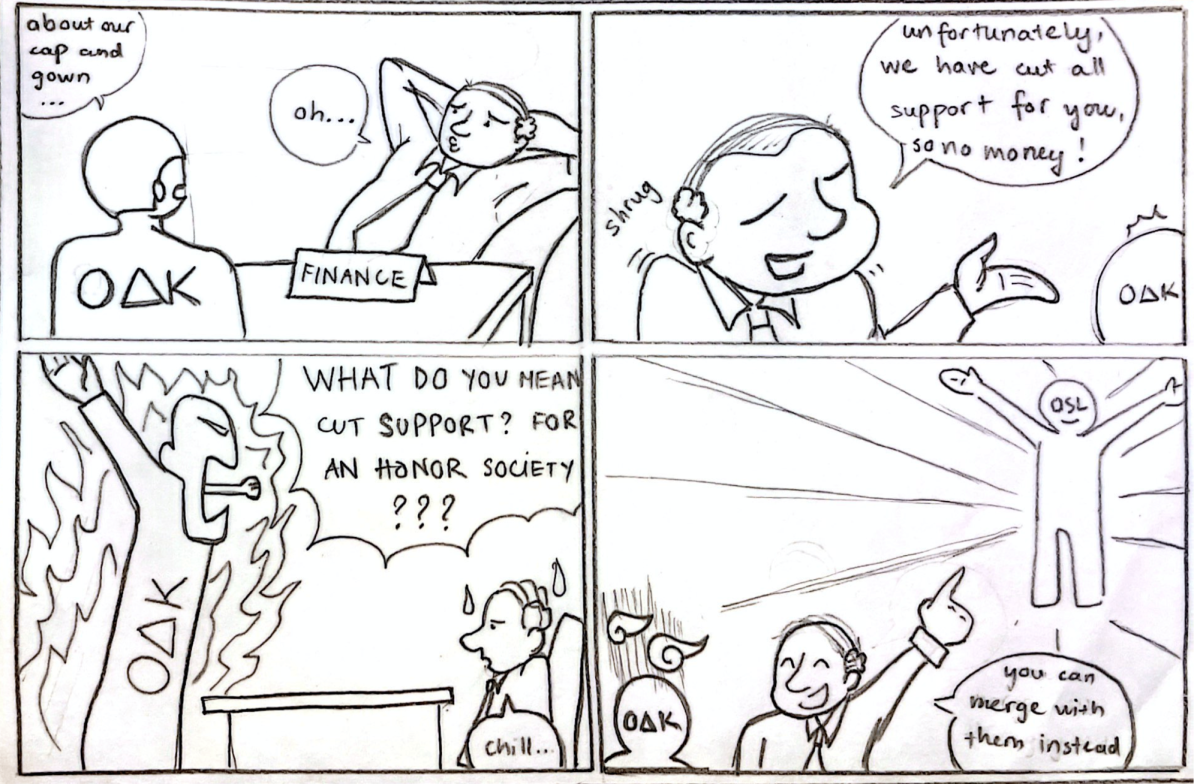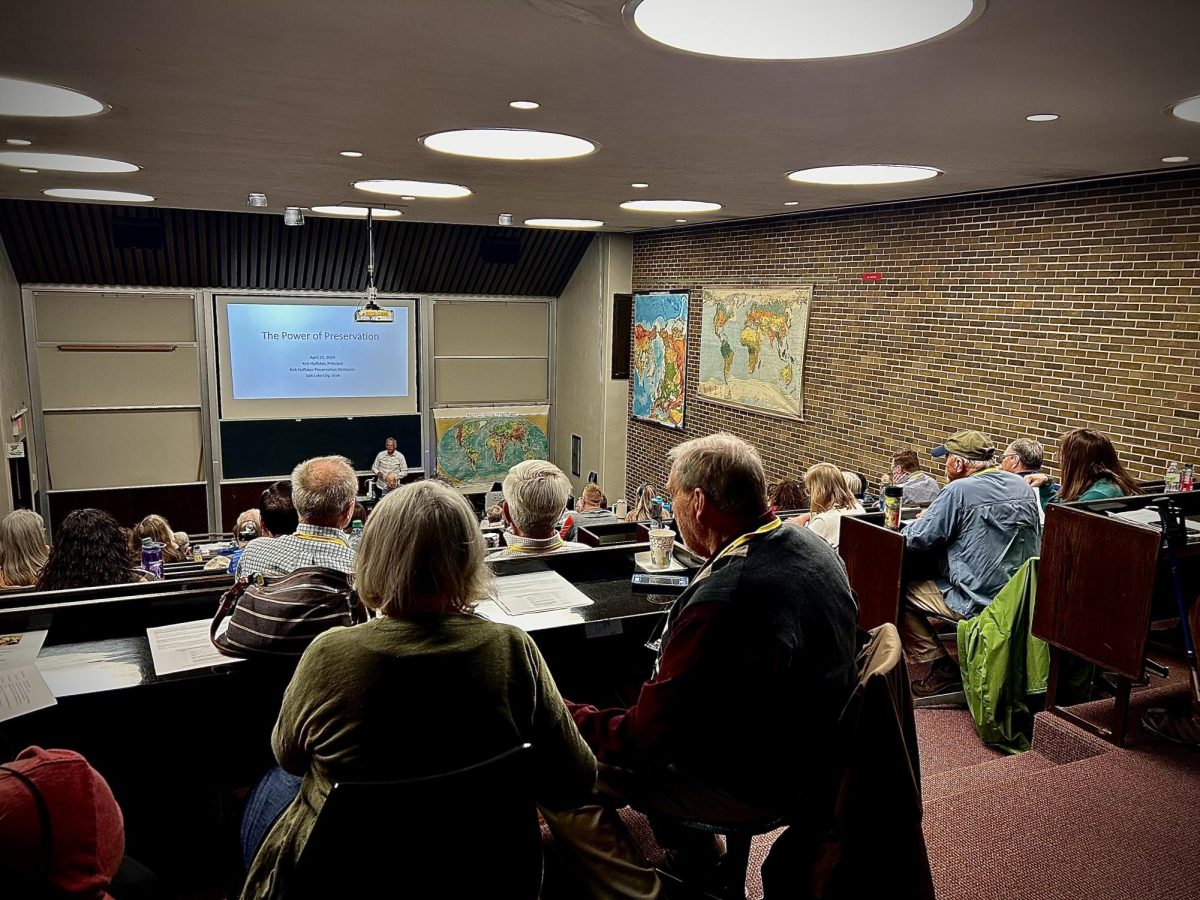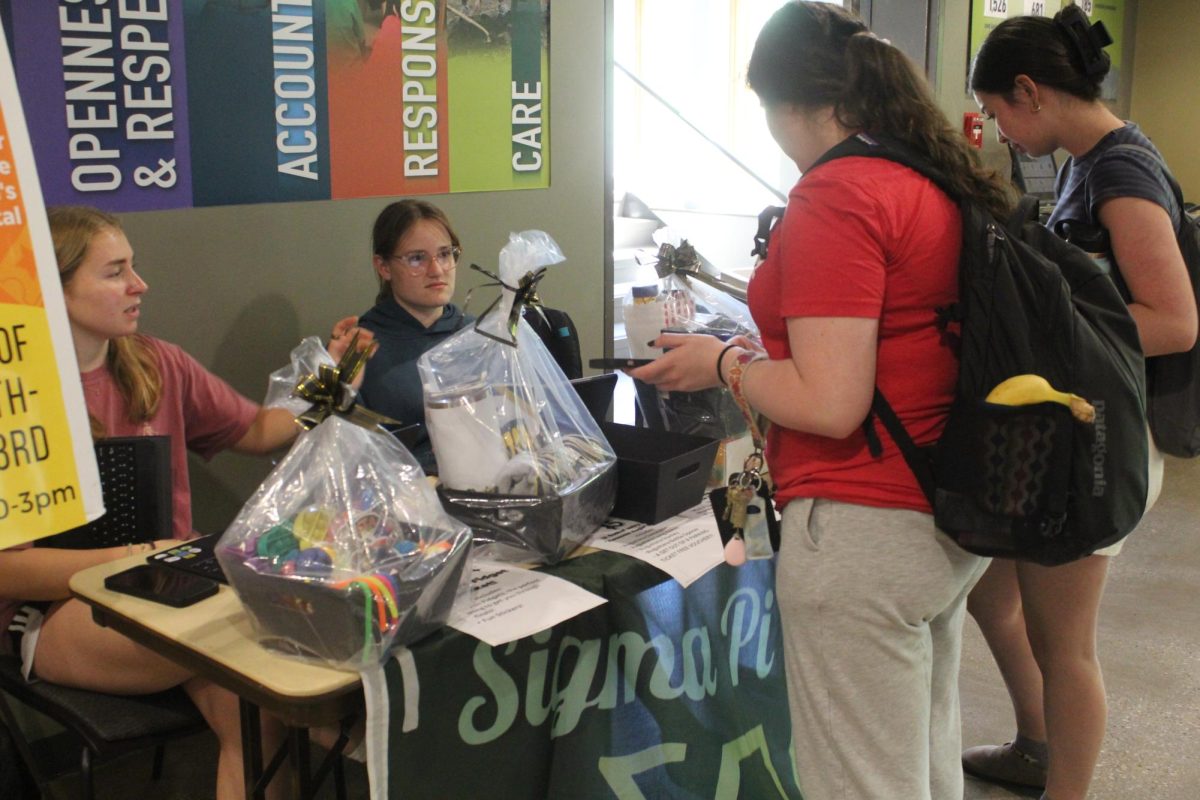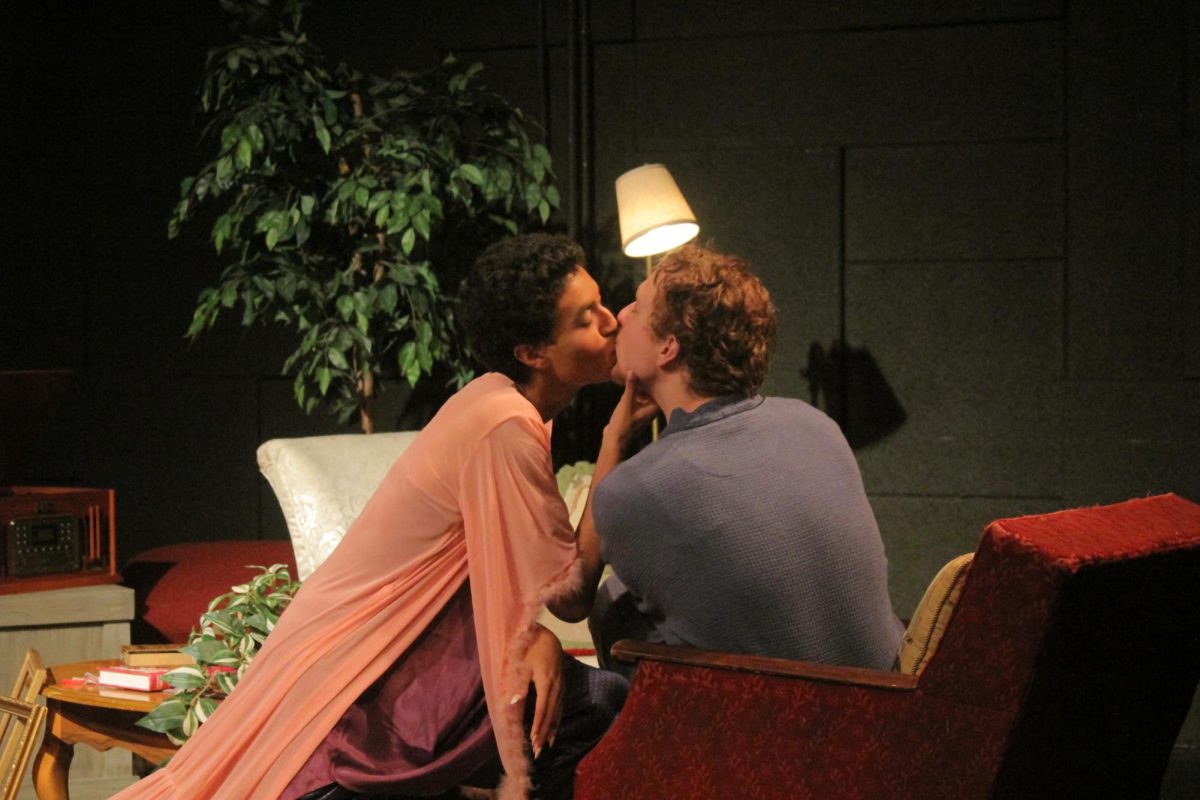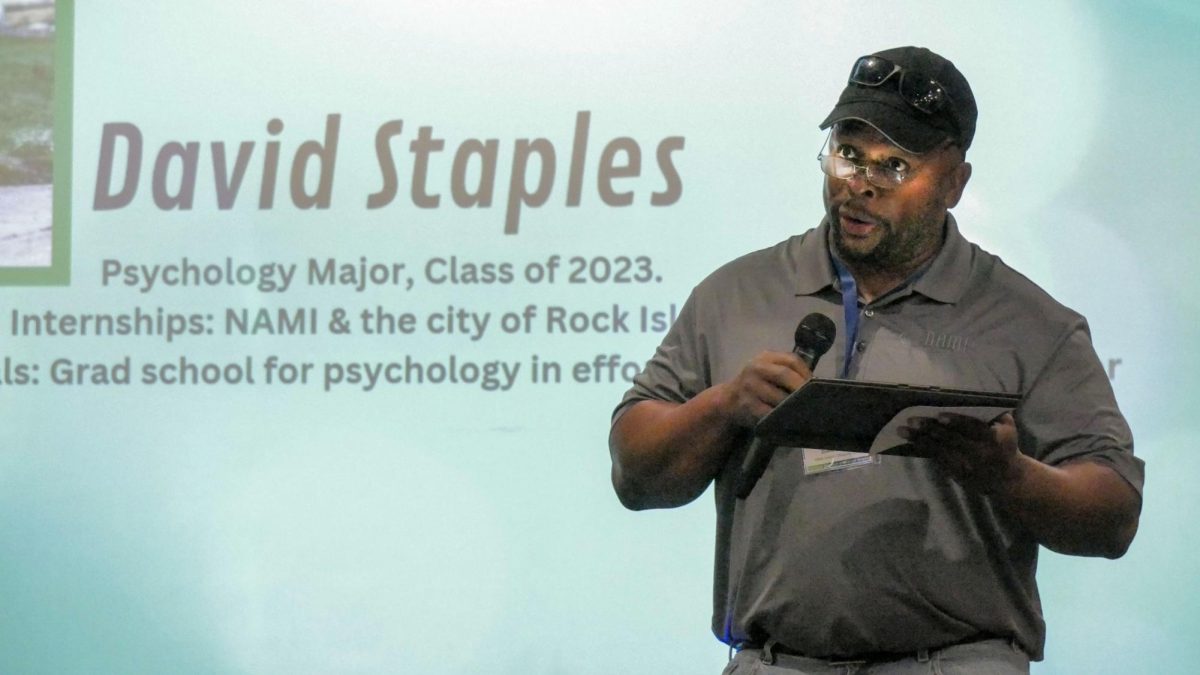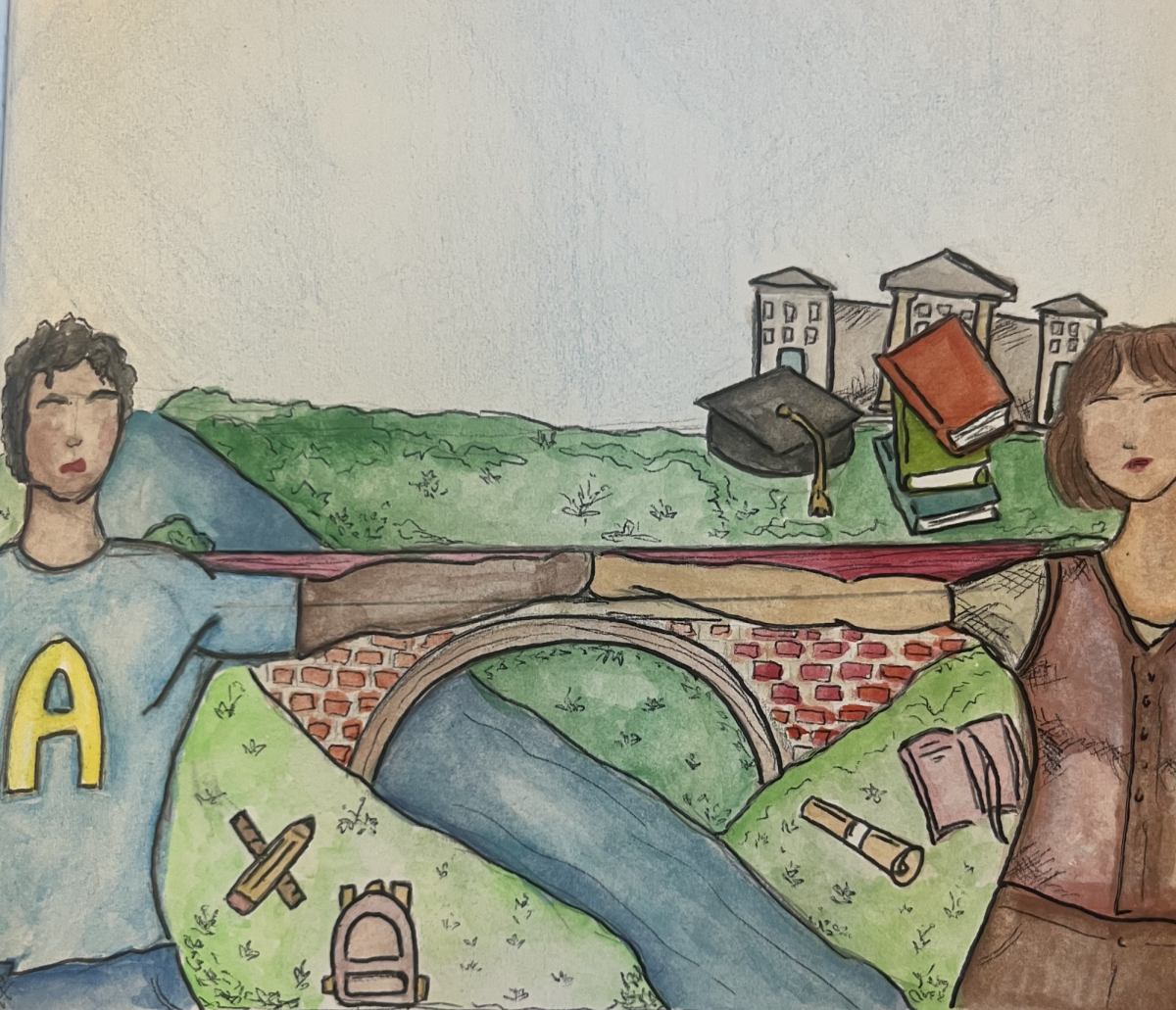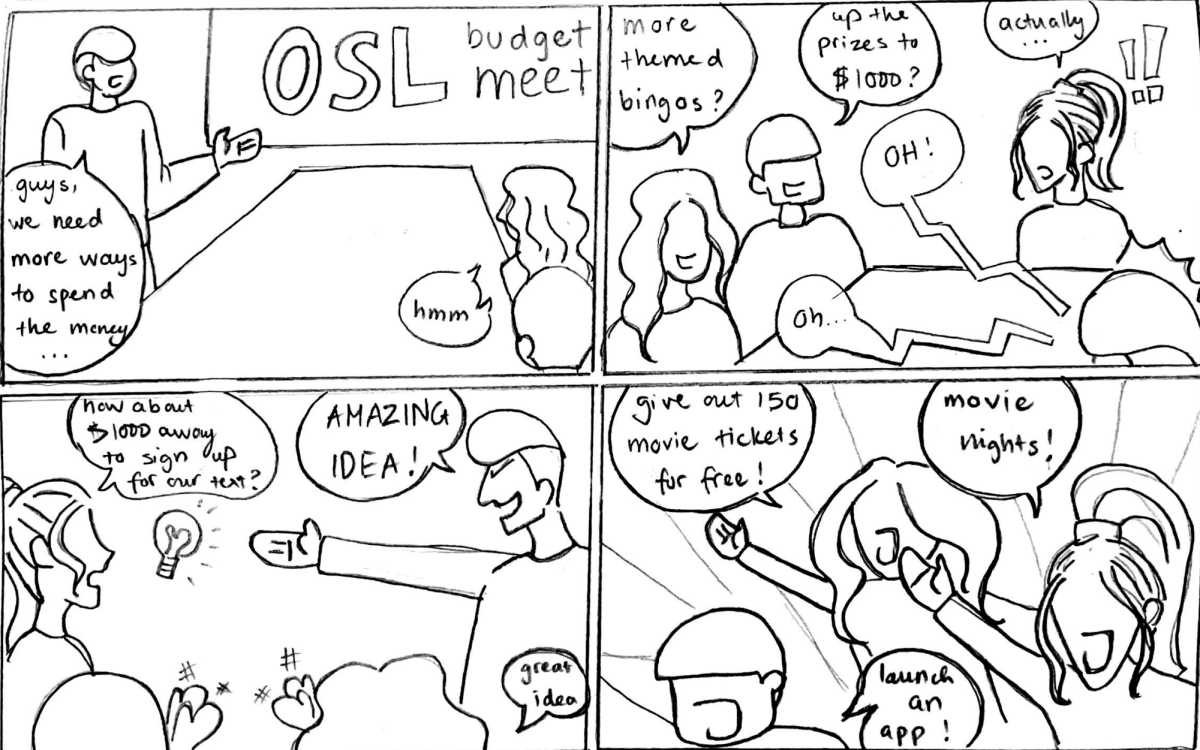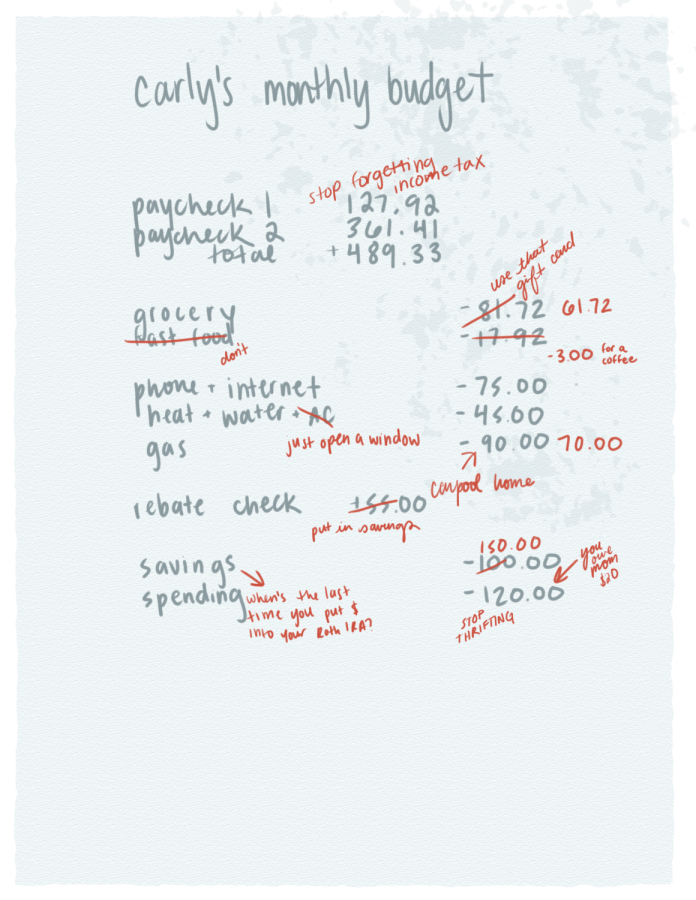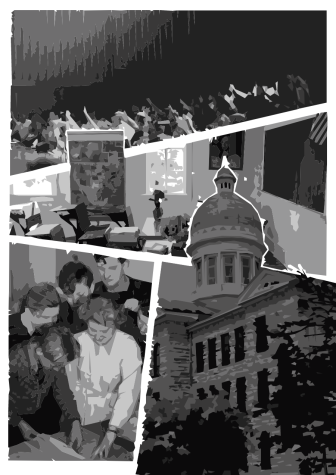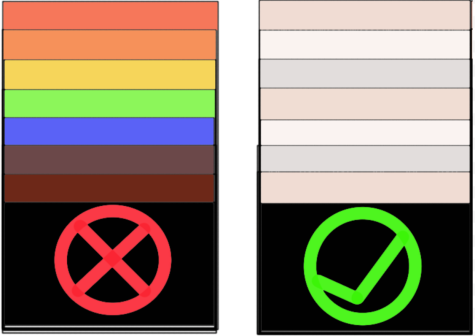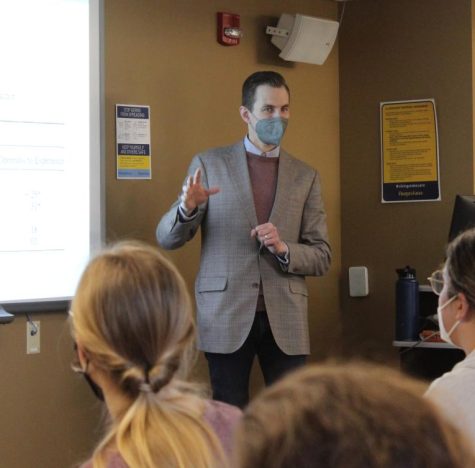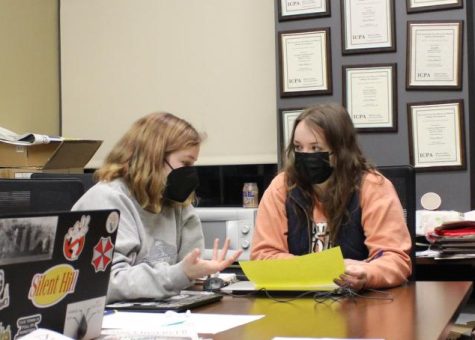Time is money (and we have neither)
May 13, 2022
When I was a first-year at Augustana, I heard anecdotally that our minimum wage would rise by a dollar every year with the rest of the state. Sure, we would be 75 cents behind, but it was progress. In 2019, minimum wage was raised to $9.25 in January and $10 in July. I figured that in 2020, when it would go up to $11/hour, Augustana would go up to $10.25 and so on.
I look foolish now, having confidently told other first-years we would be getting annual raises. I’ve long since given up the fight to have Augustana raise its minimum wage. With the state minimum now at $12/hour, many students, especially upperclassmen, are seeking out off-campus jobs to get by.
I’m one of those students after holding multiple on-campus jobs since September of my first year and doing two stints as a peer mentor. I had a job back home for the entire time I’ve been at Augustana and have recently picked up off-campus work to help with rent so I can afford to live near the school I pay to attend.
I’m not trying to seem particularly industrious. I like working. It keeps me busy and I have an addiction to buying records and secondhand clothes. I’ve worked since I was 14 years old, since I’m from Wisconsin and that’s when we can get our first jobs. Employment is old news to me, and while I share some camaraderie with other people who’ve had to work too, I’m not about to scoff at people who haven’t had to work.
But while I enjoy my job, it strains my academic performance and ability to participate in the student community Augie prides itself on. Sometimes, after returning from a weekend working at home after a week picking up shifts on-campus, I find myself exhausted and trying to remember why I take on so many hours.
Then, I get the email notification that my tuition billing statement is ready and I remember.
After all of my scholarships are factored in, I still pay thousands per semester at Augustana for tuition. When I received the presidential award as a first-year, I was given $26,000 annually. That award has been raised by $1,000 for incoming students each year, but remained standard for returning students while tuition continued to rise.
To be transparent, I also receive $4,000 each year on an art scholarship and $1,000 for the departmental scholarship prospective students can earn alongside some small scholarships. All this assistance leaves me with a sizable bill and doesn’t include housing.
As a junior, I still pay for TLA housing in a three-person house. For the 2021-2022 school year, I paid $8,944 for housing without a meal plan, which saves me about $1,000 dollars to spend on groceries.
That’s about $993.78 dollars a month, going by the standard nine months most juniors spend on campus. That said, I did not take a J-term this year and worked in my hometown. By those numbers, I pay $1,118 a month for rent (with utilities included) at Augustana.
My rent next year as a senior, living with the same two roommates in a much larger house, will be $350 before utilities. Split between three people, I anticipate paying $75.00 monthly for water and electricity and $25.00 monthly for internet (considering my third of the bills).
Of course, this does not consider the cost of a parking pass on-campus and the gas costs for transportation, as I have a car here. I also pay a monthly phone bill since a smartphone is somehow both a luxury and a necessity for college students, and I buy groceries.
Before I even think about spending money on frivolities, like vinyl records, non-dairy ice cream or a thrifted shirt now and then, I’m spending more money than I’m able to make, and I am lucky enough to not have a monthly loan payment to worry about.
It’s time to get candid about money as a student worker. I work two jobs on-campus, one of which is paid a solid rate while the other has an hourly cap. At my second job, I can work up to 15 hours a week as a “student supervisor,” though the hours only get that high one or two times a semester. Usually, I work six-to-eight hours a week at my hourly job.
If I were to max out my hours at both jobs, I would theoretically receive 25 hours’ worth of wages each week. While this sounds exhausting, it would net me $231.25 of weekly income before taxes. Monthly, I could be making $925 dollars, which would cover my rent and utilities easily, with some extra money for putting food on the table and buying gasoline. If I’m lucky, I could toss some cash into my Roth IRA. The more likely result is that any extra money I have will go into my savings account to help with my last semester of tuition.
However, working 25 hours a week as a full-time student is unsustainable. I’ve done it – it starts to impact your academic performance and leaves you tired and frustrated after a few weeks and you start to miss seeing your friends, sleeping well and having time to yourself.
Further, it’s nearly impossible to get those kinds of hours on campus. Even if one of my jobs were able to schedule me for all possible hours, I have classes during the day, and the work at the Observer is paid a set amount under ten hours a week. On average, each of my paychecks ranges from $200-400 for a regular two weeks.
If that pay period overlaps with a school break or exam week, the number drops significantly.
It is impossible to bring in a stable, supportive income as a student worker. Hours are inconsistent and limited to times Augustana is open. Pay is meager with seemingly no intention of being raised by administration, despite rising costs of living in Rock Island and the rest of the country.
While local and chain stores raise their prices significantly in response to supply costs, students are left with paychecks that seem more and more insignificant each pay period. While students are paid two dollars more than the national minimum wage, they are not compensated enough to reflect the actual cost of living in Rock Island.
Without outside financial support, it is nearly impossible for a student at Augustana to put themselves through college.
We are working towards our degrees within a system that grossly benefits individuals with generation wealth and generous parents. To be completely transparent, the only reason I am not dealing with monthly loan payments is because I receive partial assistance from my parents.
I am one of the lucky students who is able to scrape by without falling further into debt because my parents are educated and employed.
Augustana cannot fix this issue by raising student wages. It cannot lower rent, gas costs or pay my phone bill.
However, the financial institutions within Augustana must come to terms with the fact that students who struggle with debt cannot invest their time and energy back into their classes and the campus community. A campus that suffers financially will struggle academically, socially and emotionally. More than that, a student in debt isn’t about to donate to their college on its annual fundraising drive.
If we are a school that prides itself on a happy, successful and involved student body, we must reckon with our financial limitations. The notion that Augustana students are happy to study, join clubs, volunteer and stay active on-campus cannot coexist with the reality that we are a group of students struggling with an increasingly expensive cost of living while wages stagnate year after year.
